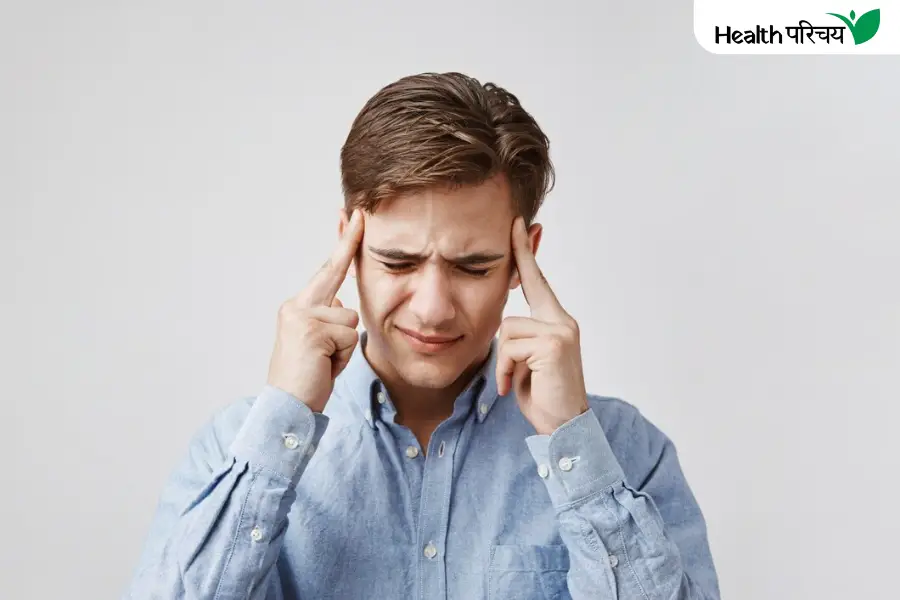Causes of Frequent Headaches: In the hustle and bustle of daily life, people often forget to take care of themselves. One of the most common discomforts many face is headaches—a problem that can affect anyone, regardless of age. While painkillers may provide temporary relief, understanding the root causes of headaches and addressing them is essential for long-term wellness.
Here are six common reasons behind frequent headaches and tips on how to tackle them effectively.
1. Stress: The Modern-Day Culprit
Stress is one of the leading causes of headaches in today’s fast-paced world. When you’re under stress, your body releases cortisol—a hormone that can trigger tension headaches by increasing muscle stiffness and blood pressure.
How to Combat Stress-Related Headaches:
- Practice yoga or meditation regularly to calm your mind.
- Incorporate physical activities like walking, swimming, or light jogging into your routine to release endorphins, natural stress relievers.
- Manage your workload effectively and take breaks to avoid burnout.
2. Lack of Sleep
Sleep is vital for your brain to rejuvenate, but a lack of adequate rest can lead to headaches. Poor sleep disrupts the body’s natural repair processes, causing tension in the neck and shoulders, which can escalate into headaches.
How to Fix Sleep Deprivation:
- Maintain a consistent sleep schedule by going to bed and waking up at the same time daily.
- Ensure your bedroom is dark, quiet, and cool for a restful environment.
- Avoid using electronic devices at least an hour before bedtime to minimize blue light exposure. Aim for 7-8 hours of quality sleep every night.
3. Dehydration
Not drinking enough water can cause dehydration, which is a major trigger for headaches. Dehydration can shrink brain tissue and disturb the balance of electrolytes in your body, leading to discomfort and headaches.
How to Stay Hydrated:
- Drink at least 3-4 liters of water daily.
- Include water-rich fruits and vegetables like cucumbers, watermelon, and oranges in your diet.
- Avoid excessive caffeine and alcohol, as they can dehydrate your body further.
4. Poor Posture
Long hours of sitting in incorrect postures, especially while working at a desk or using gadgets, can lead to tension in your neck, shoulders, and spine. This tension disrupts blood flow to your brain, often resulting in headaches.
How to Improve Posture:
- Sit with your back straight and shoulders relaxed.
- Use ergonomic chairs and desk setups to support your body.
- Take short breaks to stretch and do simple neck and shoulder exercises every hour.
5. Digital Eye Strain
Excessive use of mobile phones, computers, or tablets can lead to digital eye strain. The blue light emitted from screens puts extra pressure on your eyes, often resulting in headaches.
How to Prevent Digital Eye Strain:
- Follow the 20-20-20 rule: Every 20 minutes, look at an object 20 feet away for at least 20 seconds.
- Use blue-light filter glasses or enable blue-light reduction settings on your devices.
- Blink more often to keep your eyes hydrated and take regular breaks from screens.
6. Dental Issues
Dental problems like cavities, gum infections, or even grinding your teeth (a condition called bruxism) can cause pain that radiates to your head. Misalignment in your jaw or untreated dental issues may also lead to chronic headaches.
How to Address Dental-Related Headaches:
- Visit your dentist every six months for regular checkups.
- Brush and floss your teeth twice daily to prevent infections.
- If you grind your teeth at night, consider using a custom mouthguard recommended by your dentist.
Additional Tips to Prevent Headaches
- Manage Food Triggers: Certain foods like processed meats, cheese, and caffeine can trigger headaches. Maintain a food diary to identify and avoid these triggers.
- Exercise Regularly: Physical activity improves blood circulation, reduces stress, and helps prevent headaches.
- Keep a Headache Diary: Tracking your headaches can help you identify patterns and causes, making it easier to find long-term solutions.
- Stay Mindful of Weather Changes: Sudden changes in weather, such as high humidity or cold winds, can also trigger headaches in some people. Protect yourself accordingly.
Also Read: 5 Signs Of Mental Health Issues That Needs Immediate Attention
Conclusion
Headaches are often a symptom of underlying lifestyle issues. Identifying the root cause and making small changes in your daily routine can go a long way in preventing them. Whether it’s improving your posture, drinking more water, or managing stress, a proactive approach will not only help with headaches but also improve your overall quality of life.
If headaches persist despite lifestyle changes, consult a healthcare professional to rule out any serious medical conditions.







Leave a Reply